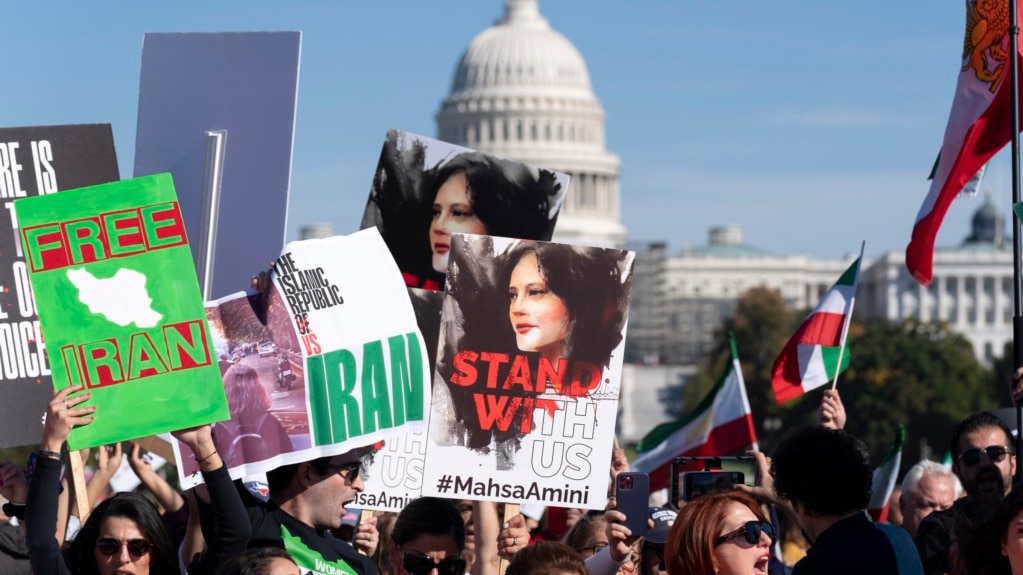The United Nations announced on Tuesday that its prize for press freedom has been awarded to three imprisoned Iranian female journalists “for their commitment to truth and accountability.”
The winners are Niloufar Hamedi, Elaheh Mohammadi and Narges Mohammadi.
Hamedi and Elaheh Mohammadi covered the story of Mahsa Amini, a 22-year-old woman who died while being held by Iran’s morality police last September. She had been accused of wearing her head covering too loosely.
Hamedi broke the news of Amini’s death and Elaheh Mohammadi wrote about her funeral. Both women were arrested for their reporting work.
The news of Amini’s death led to months of protests in many cities across Iran. One of the media professionals who chose the winners, Zainab Salbi, said the brave work of the winners “led to a historical women-led revolution.”
The third prize winner, Narges Mohammadi, has worked for many years as a journalist and is one of Iran’s most well-known activists. She has won numerous international awards for her activism against the death penalty in Iran. She has been repeatedly detained and imprisoned for her work. The UN’s cultural organization, UNESCO, says Mohammadi is currently serving a 16-year prison term in Iran’s Evin Prison.
Audrey Azoulay is the director-general of UNESCO. At an award ceremony in New York on Tuesday, Azoulay said: “Now more than ever, it is important to pay tribute to all women journalists who are prevented from doing their jobs and who face threats and attacks on their personal safety.”
The prize is officially known as the UNESCO/Guillermo Cano World Press Freedom Prize. It is named for Guillermo Cano, a Colombian journalist who was killed in front of his newspaper’s office in 1986.
The prize is given each year on May 3, World Press Freedom Day.
I’m Dan Friedell.

